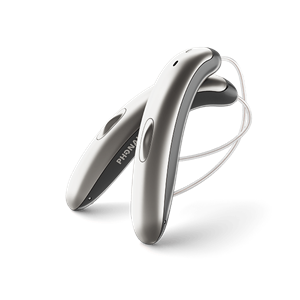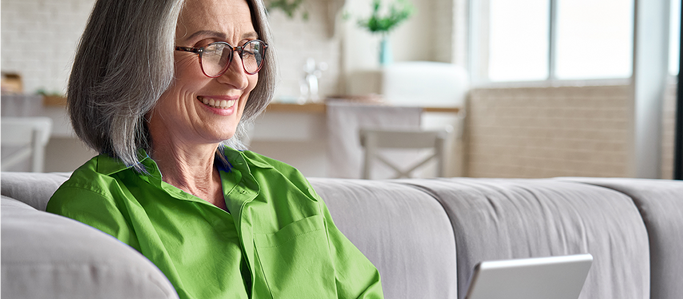Student Mentorships: Growth Opportunities for Both Students and HCPs
Student mentoring is a supportive partnership between a registered hearing healthcare practitioner (HCP) and a student. The HCP shares knowledge, skills, and experiences to foster the student’s professional growth while HCPs learn about current research and gain new perspectives. All eight audiology and hearing instrument specialist programs in Canada require mandatory student practical placements. Approximately 30 to 50% of graduates go into private clinics while the rest pursue research-based careers or work in hospitals.
Connect Hearing’s Professional Practices group has created a strong support system to help place students in our clinics across Canada each year, and to offer resources for the several dedicated HCPs that offer mentorships. During 2020, 20 students were placed in Connect Hearing clinics and 6 graduates ended up pursuing careers here. We sat down with
Margret Orme, M.Sc., Registered Audiologist, Registered Hearing Instrument Practitioner of Connect Hearing in Victoria, BC, who has mentored students for over 20 years to learn more.
Interview with Connect Hearing's Margret Orme
What skills do students learn during a placement in your clinic?
Margret:
Students begin by observing clinic appointments. Testing and diagnosing hearing loss is learned before fitting and troubleshooting hearing aids with clients. An initial needs assessment enables me to determine the skills the students wish to develop, set goals, and we discuss how they prefer to receive feedback and have their questions answered. Mid-way and final evaluations are used to track our progress in achieving the goals we’ve outlined for the placement.
What makes a good mentor?
Margret:
You need to be a good listener to understand the needs of students so you can design a program to set them up for success. You need to be good at reading people to be flexible and adapt to the needs of both clients and students. Some days you need to take over if the student is overwhelmed by a challenging client or running too far behind schedule. A good mentor is clear about expectations. I remind students of our main goal - to take care of our clients’ needs – and enlist their help.
What makes a good mentee?
Margret:
I love it when students take notes and ask lots of questions. I’m impressed when they come with a list of things they were thinking about from the day before as this solidifies their learning. A good mentee is curious, eager to acquire skills and knowledge, processes information, and asks questions for clarification. They welcome and incorporate feedback, using it to learn and grow.
Why are placements such valuable opportunities for student HCPs?
Margret:
Personal experience has taught me that mentorship is vital. It’s hard to teach clinical skills in an academic setting. You need real hearing losses to practice on to learn testing procedures. You can read about hearing aid technology. But in the clinic, you learn how to physically fit hearing instruments and see how they interact with sizes and shapes of ears, all while managing a client’s comfort and asking him/her to sit still! Clients describe their hearing challenges and what they don’t like about the sound in their own words. Only experience can teach you how to implement a correction based on this anecdotal feedback. You can only learn such hands-on skills in a clinic.
Students learn interpersonal skills, how to recognize when clients seem confused or frustrated by reading non-verbal cues, and how to respond. Many students have never interacted with seniors before. It’s a new dynamic to be the professional counselling an older adult! Our business is relationships; clients purchase a solution because they trust their HCP. Students need coaching on how to develop these relationships.
What do you enjoy most about having a student in your clinic?
Margret:
This career is never boring as each client is unique. Similarly, mentoring reignites my own excitement as I see from different students’ perspectives. They ask new questions, query why we do things a certain way. Clients are happy to support student learning and share their experiences with friends and family. We proudly display that the clinic is a teaching facility for UBC’s Faculty of Medicine.
Tell us about the award you recently received.
Margret:
I was honoured to receive the 2018 Noelle Lamb Award for Excellence in Clinical Education (Audiology) from UBC. It was such a lovely surprise! The award says: “Margret’s ability to tailor her guidance to match the learning style of each student, foster confidence and encourage critical thinking, all while caring for her clients is truly worthy of recognition. She consistently receives exceptional student feedback from Audiology and SLP students who speak of her kindness, skill, empathy, and openness. We look forward to her continued influence on UBC students, and future Audiologists in particular.”
UBC’s Faculty of Medicine School of Audiology and Speech Sciences also recognized my contributions with a new title of Clinical Assistant Professor on July 1, 2020.
Would you recommend other HCPs getting involved in mentorship? How can you participate?
Margret:
Absolutely. Mentorships foster openness and learning. Clients and staff are excited to participate! It’s a way for us all to give back to the professional community.
If you are interested in a student opportunity at Connect Hearing, you can let us know by filling out this form.



